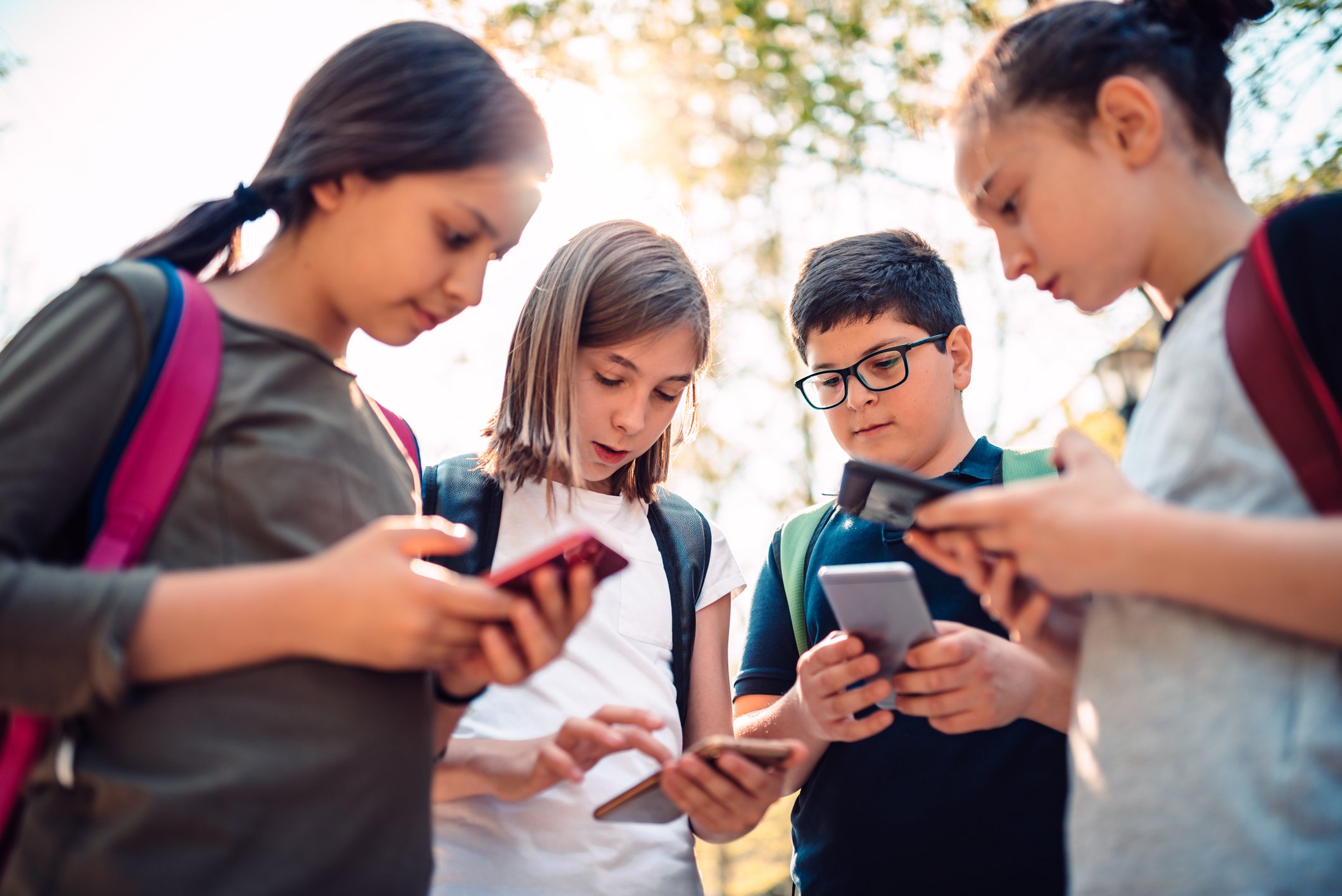Hey, Everyone!
Growing up, I never understood how adults could become so out of touch with current culture. My angsty teenage self would think, how don't they know this? Or why is it so hard to figure it out? As an adult, this thinking has come back to bite me hard. I now understand it more than I care to. The answer is that it's a lot of work to decipher what my students are talking about - no cap!
As an adult, my priorities, concerns, and interests focus on other things. However, I'm probably more "with it" than others my age because, as a teacher, I spend most of my time surrounded by kids. Also, professionally, I have to dedicate time to deliberately stay up to date on current culture to make what I teach relevant, practical, and interesting. With that being said, this week, I have chosen to do some summer research on social media's effect on education and teens. Here are two great articles that I have read.
:no_upscale():format(webp)/cdn0.vox-cdn.com/uploads/chorus_asset/file/8846913/giphy.gif) |
| Image property of Giphy |
The Teenage Perspective
Author: Taylor Fang
Favorite Quote: "To grow up with technology, as my generation has, is to constantly question the self, to split into multiplicities, to try to contain our own contradictions."
 |
| Image Property of iStock |
This article had me highlighting interesting viewpoints throughout the entire read. It was written by a senior at Logan High School in Logan, Utah. While many of us "old folk" often feel that our youth are mindlessly wasting time on social media and have lost the ability to socialize in real life, teens are doing so much more with these platforms. They are using them to create and shape their sense of self. Teenagers posting about their lives is not the problem. The problem is that we continue to change how we want to be represented as time goes on, whether as a teenager or an adult, and the permanency of the internet makes that transition difficult.
Often, teens' use of technology is dismissed, but in reality, they celebrate achievements, curate biographies, make close connections, and find niche communities to join. While social media is known for creating insecurities, it also validates and makes teens feel seen. Taylor also mentions that she grew tired of a cycle of "presenting a polished version" of herself and began using social media less and less. She also said she saw her friends go through this same shift. It makes me wonder if teenagers use social media differently than adults because it's an important part of their generation or if they use it because it is an important part of growing up. Does the importance of social media change as people get older? I personally loved it when I was in high school. I dedicated a lot of time to creating a MySpace profile that would represent me and constantly updating it. Now, I only use social media if I need to professionally. After reading this, I would love to give my students the same prompt that encouraged this article: What are adults missing about technology
Digital Self-Harm
Title: "Digital self-harm: What to do when kids cyberbully themselves"
Author: Juli Fraga
Favorite Quote: "“In her mind, saying similar [negative] things about herself was one way to control the narrative.”
 |
| Image Property of Getty Images |
A TikTokker admitted to digital self-harm as a teen and explained that some teens do this to gain control of a negative narrative about themselves. Another reason is that some are seeking sympathy responses. They will send out anonymous negative messages in the hopes that others will defend or compliment them. This TikTok post received 1,658 comments and 136,000 likes, with people stating they thought they were the only ones to have done this as a kid. Jack Turban, a fellow in adolescent and child psychiatry at Stanford University, suggests having an open and judgment-free dialogue with your children regarding the topic. He states that self-harm, in general, often creates feelings of shame when others discover it. This shame can often make the self-harm worse. Digital self-harm is very hard to discover and monitor as it can be hidden online so easily with fake accounts no one knows exists. Due to the fact that it is so easily undetected, he suggests asking for input from your child, also known as cognitive empathy, versus trying to separate your child from technology. He states, “An open, nonjudgmental approach makes kids feel more comfortable asking for help if they get in trouble online.” Interesting, right?
Have you read any interesting articles on the effects of social media on teens?
If so, please leave a comment to share!
If so, please leave a comment to share!






0 comments:
Post a Comment